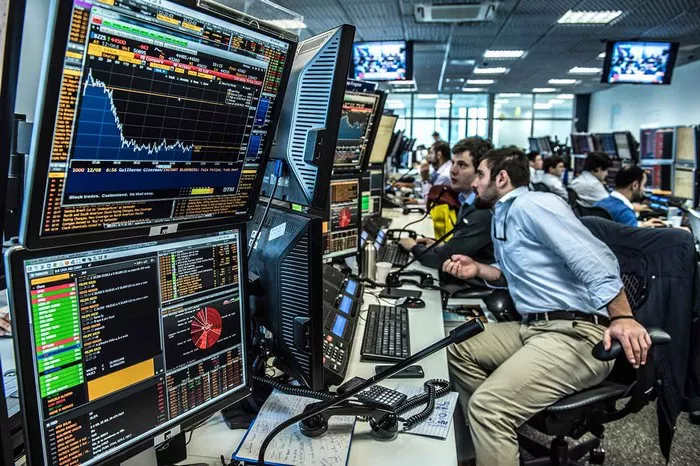Asian stocks experienced a decline on Wednesday, mirroring a selloff in the United States as investors assessed the sustainability of the recent artificial intelligence (AI) rally that has fueled the bull market. Equity benchmarks in Sydney, Tokyo, and Seoul all recorded losses, while Chinese mainland stocks fell by as much as 1.3%, extending their decline since an October 8 peak to over 10%. This downturn occurred as optimism waned regarding Beijing’s ability to effectively support the struggling economy. Meanwhile, S&P 500 futures remained relatively unchanged, and U.S. Treasuries held steady in Asia.
The semiconductor sector faced broader weaknesses, with Asian chip stocks such as SK Hynix Inc. and Samsung Electronics Co. Ltd. registering declines. This trend was partly influenced by a drop in shares of Dutch semiconductor giant ASML Holding NV, which revised its 2025 outlook downwards. In the U.S., Nvidia Corp. fell by 4.7%, highlighting a potential slowdown for some of the industry’s leading companies.
Vishnu Varathan, the Asia head of economics and strategy at Mizuho Bank Ltd. in Singapore, noted, “The European tech pullback spill-over on to Wall St is inevitably set to drag Asia.” He added that “optimism on Chinese stimulus appears to have been dulled at the margin,” prompting investors to take profits rather than adopt a bullish stance on Chinese equities.
Looking ahead, China’s housing minister, Ni Hong, is scheduled to hold a press briefing on Thursday, likely detailing measures aimed at supporting the property sector and stimulating economic growth. He will be the latest senior economic official to publicly address the government’s focus on stabilizing growth.
In the U.S., the S&P 500 dropped to around 5,815, and the Nasdaq 100 declined by 1.4%. The dollar remained steady after reaching its highest level in nearly two months, following remarks from former President Donald Trump, who defended proposals to significantly raise tariffs on foreign imports. Additionally, Raphael Bostic, President of the Federal Reserve Bank of Atlanta, commented on the expectation that the U.S. economy would slow this year while remaining robust, cautioning that the path to lower inflation might face challenges.
In Asia, the New Zealand dollar and sovereign bond yields decreased after the annual inflation rate fell sharply in the third quarter, returning to the central bank’s target range for the first time in over three years.
Meanwhile, monetary policy decisions are expected later Wednesday from three of Southeast Asia’s largest economies. Indonesia and Thailand are anticipated to maintain their current interest rates, while a rate cut is projected for the Philippines.
Related topics:


